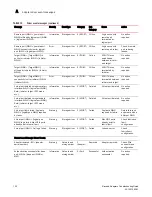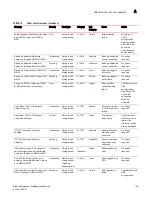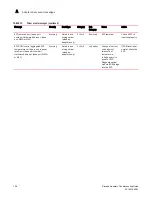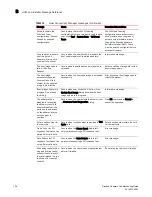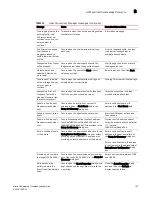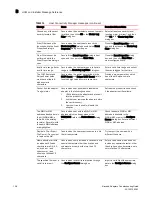
Brocade Adapters Troubleshooting Guide
93
53-1001582-01
Chapter
4
Performance Optimization
In this chapter
•
•
Tuning storage drivers
This section provides resources for optimizing performance in adapters by tuning the unified
storage drivers on Linux, Windows, Solaris, and VMware systems. To optimize performance for CNA
products, also use resources under
“Tuning network drivers (CNAs only)”
Linux tuning
Linux disk I/O scheduling reorders, delays, and merges requests to achieve better throughput and
lower latency than would happen if all the requests were sent straight to the disk. Linux 2.6 has
four different disk I/O schedulers: noop, deadline, anticipatory and completely fair queuing.
Enabling the “noop” scheduler avoids any delays in queuing of I/O commands. This helps in
achieving higher I/O rates by queuing multiple outstanding I/O requests to each disk.
To enable the noop scheduler, run the following commands on your system.
for i in /sys/block/sd[b-z]/queue/scheduler
do
echo noop > $i
done
NOTE
You must disable the default scheduler because it is not tuned for achieving the maximum I/O
performance.
For performance tuning on Linux, refer to the following publications:
•
Workload Dependent Performance Evaluation of the Linux 2.6 IO Schedulers
Heger, D., Pratt, S., Linux Symposium, Ottawa, Canada, July 2004
•
Optimizing Linux Performance
HP Professional Books, ISBN: 0-13-148682-9
•
Performance Tuning for Linux Servers
Sandra K. Johnson, Gerrit Huizenga, Badari Pulavarty, IBM Press, ISBN: 013144753X
•
Linux Kernel Development
Robert Love, 2nd edition, 2005
























